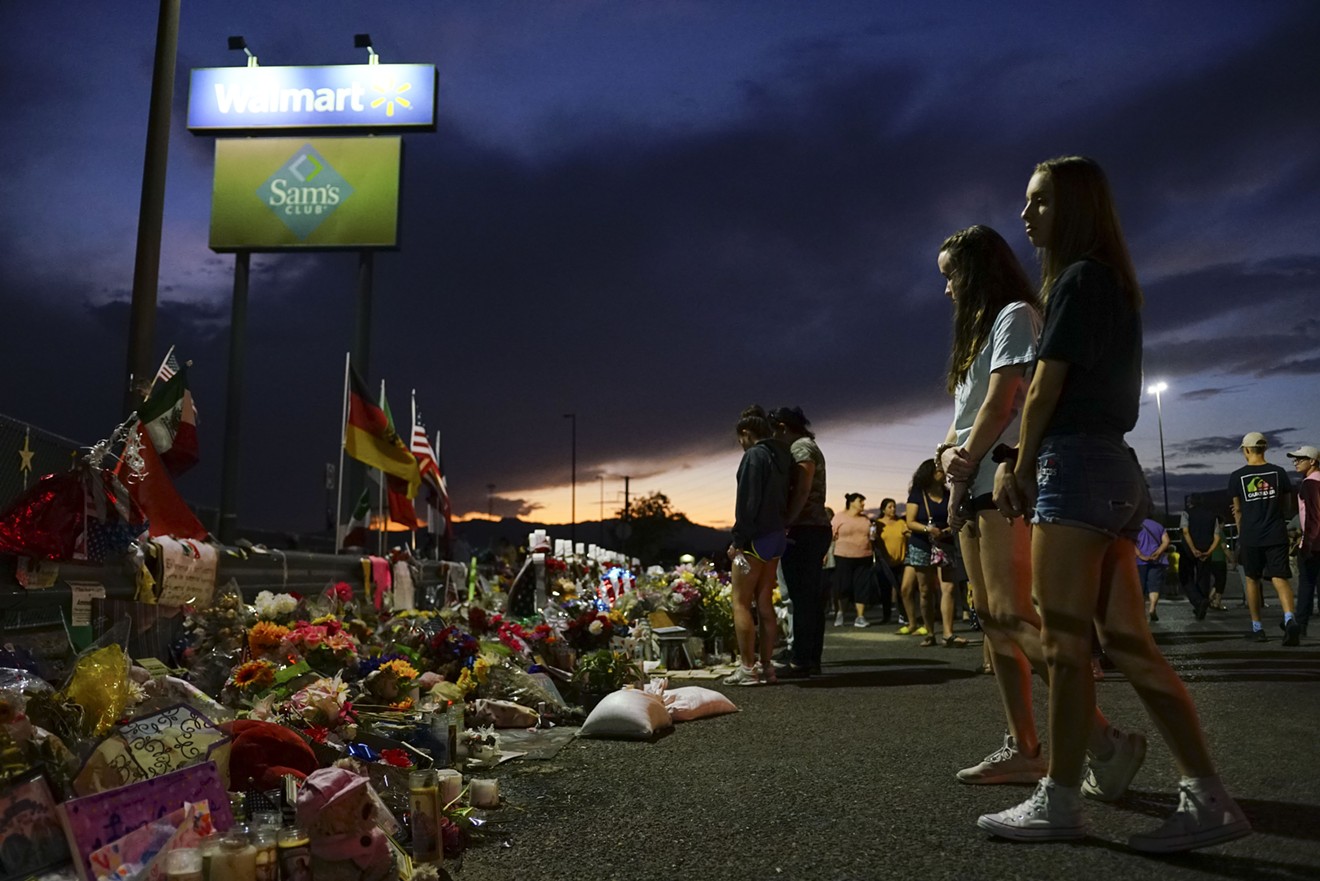Patrick Crusius’ Collin College classmates later remarked how quiet he was. Yet he’d apparently penned a brash, hate-filled manifesto ahead of the attack, detailing his goals to “gun down people of Hispanic descent and ethnicity,” according to El Paso Times.
After the killing spree, many noted that Crusius’ writing mirrored then-President Donald Trump’s anti-immigrant rhetoric. Now, some fear that recent comments made by Gov. Greg Abbott could similarly become the impetus for future hate crimes.
In June, immigrant rights advocates slammed Abbott and Lt. Gov. Dan Patrick for likening border-crossing migrants to an “invasion,” according to The Texas Tribune. Last week, the governor ramped up that rhetoric, taking to Twitter to warn of weapons, drugs and disease spreading throughout Texas communities.
“[President Joe Biden] seems to have his head in the sand as it concerns the COVID spread and the Delta variant that’s being imported across our border,” Abbott said during an interview with the far-right station Newsmax.
Abbott has also raised some eyebrows with a new executive order. Issued last week, it directs state troopers to stop drivers they suspect are transporting migrants, supposedly to stop the spread of COVID-19. Texas Department of Public Safety (DPS) authorities can then reroute such vehicles back to their port of entry or origin point, or even impound them.Biden has his head in the sand when it comes to the border.
— Greg Abbott (@GregAbbott_TX) July 29, 2021
His policies are allowing drugs, weapons, & COVID to spread into our communities.@TxDPS & @TexasGuard have been deployed to stop the surge of illegal activity at the border & restore the rule of law. pic.twitter.com/c1dQAEB3jo
Soon, the U.S. attorney general called on Abbott to rescind the order. In response, the governor accused the Biden administration of putting Texans and Americans at risk by "knowingly admitting hundreds of thousands of unauthorized migrants, many of whom ... have COVID-19."
Bernardo Cruz, an El Paso-based staff attorney with the American Civil Liberties Union of Texas, said Abbott’s order is a “blatantly unconstitutional” attempt to impose immigration laws. There’s no way to enforce it without racially profiling people, he said. Plus, an influx of DPS officers will mean an increase in militarization of border communities.
Still, the governor has resisted implementing a coordinated COVID-19 strategy, adopting a “voluntary” approach to vaccination and dismissing calls to reimplement mask mandates. Cruz believes that by “scapegoating” migrants for the disease, Abbott is attempting to distract from his own coronavirus response.
“This can have a really devastating impact on asylum seekers who are here legally trying to request asylum, and also the border community,” he said.
Abbott’s office did not return the Observer’s request for comment by publication time.
It’s no longer a matter of debate that hate rhetoric can spur hate crimes, said Heidi Beirich, an expert on extremism and co-founder of the Global Project Against Hate and Extremism. Research indicates that when a politician demonizes a population, it sometimes translates to real-world action, she said.“They really should be held to a higher standard and it’s unacceptable." – Heidi Beirich, extremism expert
tweet this
Beginning last year, hate crimes against Asian Americans spiked as they were blamed for COVID-19. Still, vilifying minorities for supposedly importing illnesses isn’t exactly new, Beirich said; the Nazis accused Jews of bringing in sexually transmitted diseases.
“It’s actually a very old-school demonization tactic, and it’s despicable,” she said. “And it will make the Latino population in Texas and beyond face the same kind of violence that we saw happening to the Asian population in this country.”
Other recent massacres were also tied to immigration, Beirich said. In 2018, the shooter at the Pittsburgh Tree of Life synagogue was targeting a Hebrew immigrant aid society, for instance. She said another example is the 2019 Christchurch, New Zealand, shooter, who aimed for Muslim immigrants.
Politicians with virulent anti-immigrant platforms may try to shirk responsibility for such attacks, but Beirich said there’s a direct correlation. For instance, counties that held a 2016 Trump rally saw 226% more hate crimes than those that didn't, according to The Washington Post.
With large constituencies and a megaphone, Beirich said politicians who demean certain populations are themselves “super-spreaders of hate.” She can’t understand why they’d continue to engage in behavior that is known to lead to violence.
“They really should be held to a higher standard, and it’s unacceptable,” Beirich said. “It’s the 21st century. You’d think they would stop behaving in the ways people did in the 1930s.”












